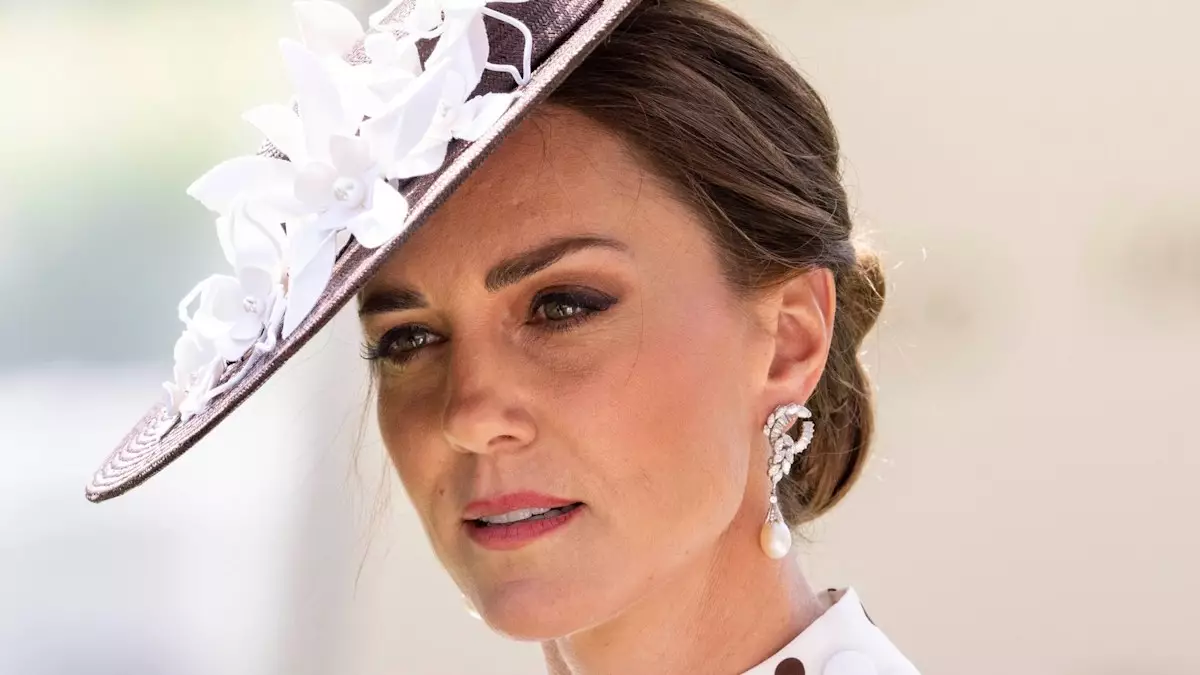The recent news surrounding the Princess of Wales, Kate Middleton, highlights the delicate balance between personal health and royal obligations. At age 43, Kate has decided to withdraw from attending Royal Ascot, a prestigious event that serves as a staple of British social and sporting life. The disappointment expressed by the Princess, who had long anticipated experiencing the thrill of this occasion alongside her husband, Prince William, and the royal family, reflects a commitment to her health and well-being above all.
Having faced a battle with cancer, which involved six months of preventative chemotherapy, Kate’s experience underscores the emotional and physical toll such an illness can take even on those who seem to lead enchanted lives. Her absence from this significant event is not just a personal decision; it symbolizes an Ashcanian approach to life where self-care takes precedence over social expectations, especially when involved in such a public role. Such awareness is commendable and should be embraced in a society that often pressures individuals to put on a brave face regardless of their internal struggles.
Royal Events: The Weight of Tradition and Expectation
Royal Ascot is a blend of grand tradition and dazzling spectacle, attracting a range of personalities from sports figures to members of aristocracy. The public had been eagerly looking forward to seeing the Princess, particularly with Prince William assuming a prominent role in awarding race prizes. The event’s allure extends beyond horse racing; it represents a tapestry of British culture interwoven with the royal family’s legacy. Therefore, the absence of Kate raises questions about the expectations tied to royal appearances. Are these events sometimes overshadowed by the individual’s personal trials? The Princess’s withdrawal raises awareness around the human experience behind the glamour.
In a modern context, where public figures grapple with health crises, the expectation for them to maintain a façade of perfection warrants discourse. Kate’s reflections on her journey show that vulnerability, even in high-profile personas, can resonate powerfully with the public. As she contemplates her priorities, her story can pave the way for broader discussions about mental health and well-being, especially for women in the spotlight.
Family Support Amidst Challenges
Interestingly, Kate’s mother, Carole Middleton, and her brother James’s wife, Alizee Thevenet, were among the racegoers at Royal Ascot, indicating a strong familial network supporting the Princess during these testing times. Family ties often form the backbone of anyone navigating adversity, and for someone of Kate’s stature, that support becomes even more crucial. This reinforces the poignant reality that even in royal circles, the weight of personal health battles can be all-consuming, prompting individuals to lean on their loved ones when the going gets tough.
Furthermore, attending royal engagements often requires a level of emotional resilience that can be difficult to muster while grappling with one’s health. Bottom line, Kate’s story is not just about one individual’s health crisis; it represents a larger conversation about how society views vulnerability, particularly in the public domain.
As the Princess of Wales continues on her journey toward recovery, she embodies a resilience that inspires others facing their own battles. Her choice to prioritize health over tradition presents a powerful statement that personal well-being is paramount, even for someone immersed in the royal limelight.

